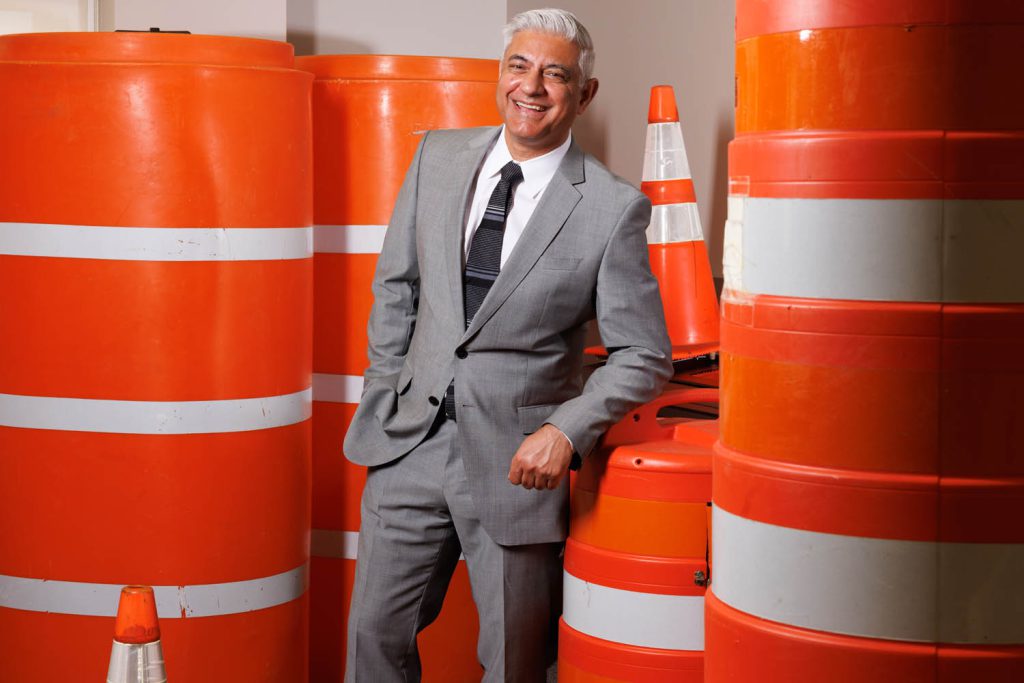Improving transportation equity
Until recently, crash test dummies were modeled on the average 1970s man.
Designing road safety systems based on Robert Redford proportions leave women more likely to be severely injured or killed in a car accident, according to the National Highway Traffic Safety Administration.
To improve road safety and address other areas of transportation inequity, Nebraska’s Mid-America Transportation Center received $15 million from the U.S. Department of Transportation.
The award stems from MATC’s nearly 30-year history of delivering road and railroad safety research for the real world.
“Our transportation engineering program is considered a leader in the Midwest,” said Aemal Khattak, MATC director and professor of civil and environmental engineering. “We’ve done a lot of research to improve transportation safety in the Midwest but, to my knowledge, no one has looked at equity-related issues when it comes to transportation safety in the Midwest.”
Because women’s skeletal and muscle structures differ from men’s, they sit differently in cars and sustain different injuries. Using computer simulations and crash tests with newly available dummies, Husker researchers will develop road barrier guidelines and other safety systems that reflect these differences.
Other equity projects include assessing medical care access for disadvantaged populations, such as visually impaired folks living in rural areas.
MATC is also helping to improve transportation-related education and workforce development.
In collaboration with the Nebraska Indian Community College, MATC is establishing a Safe Driver Academy to provide free commercial and noncommercial motor vehicle driver training. The program aims to improve road safety while providing job training and addressing a national commercial motor vehicle driver shortage.

The award also funds existing MATC educational programs designed to encourage Native American and disadvantaged students’ participation in higher education, including the Sovereign Native Youth Stem Leadership Academy, a summer program for high school students; the MATC Scholars Program, which helps Native community college students transfer to four-year degree institutions; and the Roads, Rails and Racecars afterschool program for middle school students.
The award also allows MATC to expand its outreach and education programs.
MATC is establishing a Safe Driver Academy to provide free commercial and noncommercial motor vehicle driver training. The program aims to improve road safety while providing job training and addressing a national commercial motor vehicle driver shortage.
The award also supports existing educational programs, including the Sovereign Native Youth STEM Leadership Academy, a summer program for high school students to explore education and career options; the MATC Scholars Program, which encourages students from Historically Black Colleges and Universities, and Minority-Serving Institutions and Hispanic-Serving Institutions to pursue college degrees and teaches skills to succeed in STEM, and encourages students from Nebraska Indian Community College to pursue four-year STEM degrees; and the Roads, Rails and Racecars afterschool program for middle school students.
For this grant, Nebraska partners with the University of Iowa, University of Kansas, Missouri University of Science and Technology, Nebraska Indian Community College and the University of Missouri-St. Louis.
+ Additional content for Improving transportation equity
News release: Mid-America Transportation Center receives $15 million grant
Lincoln Journal Star article: UNL gets $15M grant, extended contract
Nebraska Today: Summer program for Native youths returns to campus
Photo gallery of 2023 Sovereign Native Youth STEM Leadership Academy








